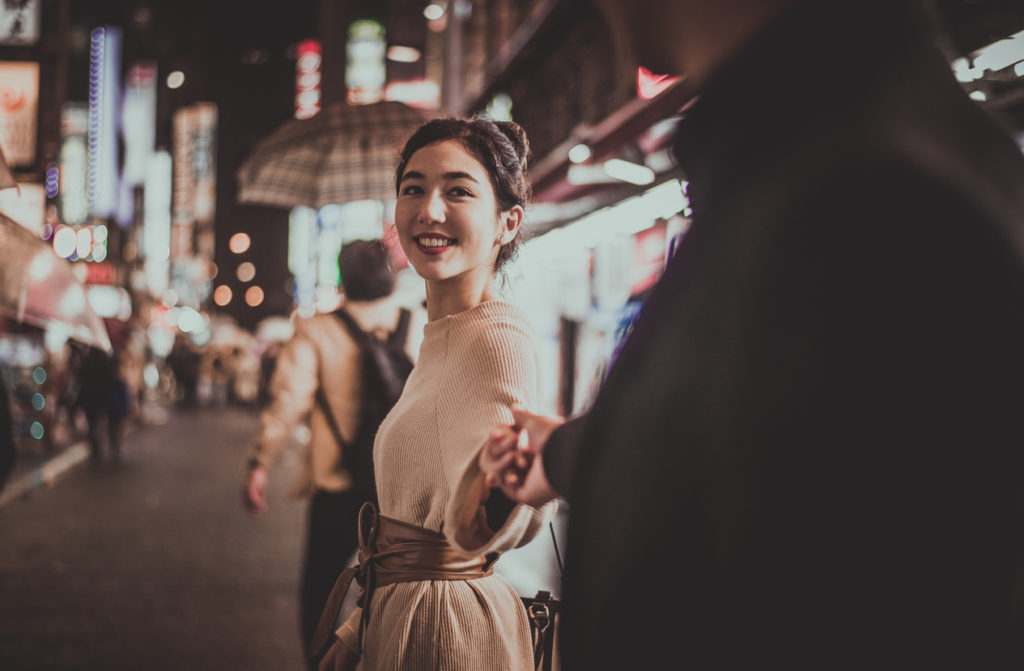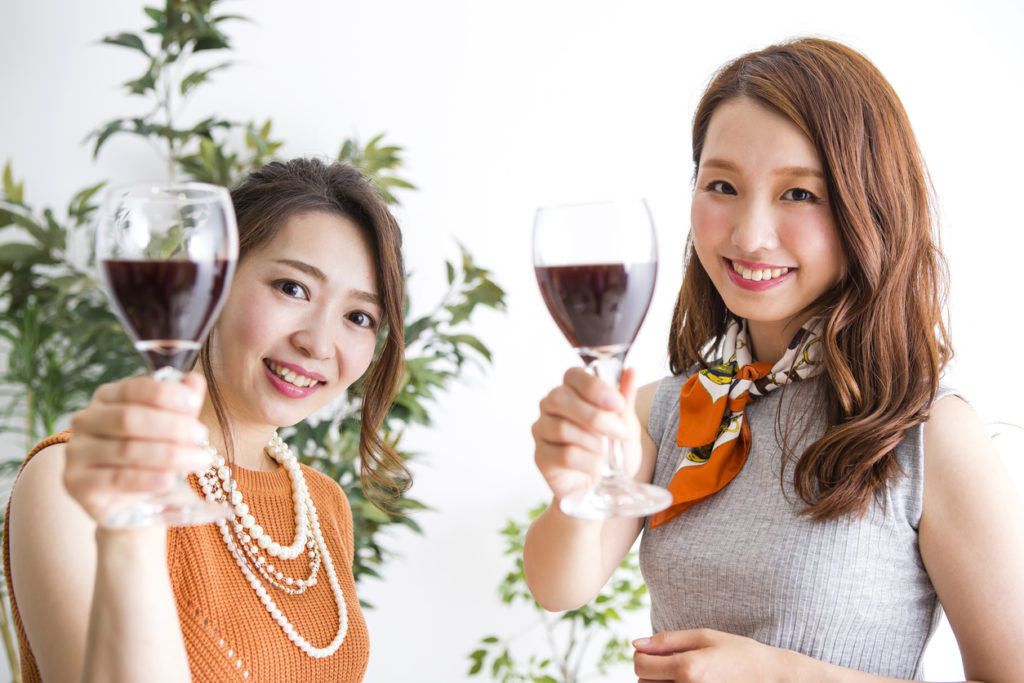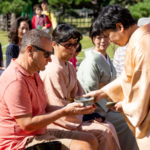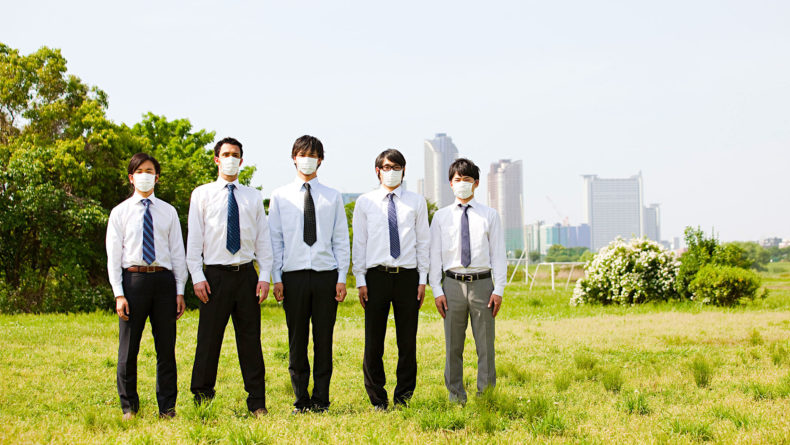A Label For Everyone: The Many Types Of Women In Japan
So, What's Your Type?
Himono-onna, Minato-ku joshi, Age-Man... You may have overheard these terms or seen them appearing repeatedly on social media. What do they mean, and what have they got to do with women in Japan? Well, this article will answer your questions—and give you a glimpse of not only the women behind those inventive groups but the Japanese society as a whole.
If you’ve lived in Japan for a while now you may have overheard people saying things like: “She’s sure an age-man, her husband got promoted right after they got married,” or “That girl is so nikushoku-joshi, she doesn’t care if the guy she has a crush on has a girlfriend or not. She just goes for him,”—or even, “I was a bari-kyari until I got pregnant. Now, I’m a yuru-kyari and earn less than before, but I’m glad I made that decision because everyone in my family is happy!”
The list is endless and these are all words and phrases that categorize and describe types of women in Japanese culture. You’ve probably noticed that Japanese women (and men) like to and tend to categorize others—and themselves—based on their personality, actions, and behaviors, as well as how they’d chosen to live their lives.
But why so many labels do exist in Japan?
This tendency probably has a lot to do with the importance of wa (和, group harmony) in the Japanese society—how one should always belong in and conform to a group, and be both dependent on and responsible to other members of that group. This, I believe, is why there are so many categories/groups out there for Japanese women—and why during a joshi-kai (女子会, women’s get-together) and other similar occasions, you’ll hear remarks such as the ones above made over and over again.
Without further ado, let me introduce some common terms and phrases that are often used to depict a certain type of Japanese woman. Some of them have quite a history, but are still commonly heard in daily life; others are buzzwords that have popped on social media and/or appeared in female fashion magazines these last years.
‘Age-man’ & ‘Sage-man’
Motivating or dragging down your partner?

The term age-man (アゲマン) became a buzzword in the early 1990s, after the movie with the same title directed by Juzo Itami, became a hit in Japan. Called “Tales of a Golden Geisha” in English, this comedy tells the story of a geisha who brings luck to the men with whom she gets involved with. Age comes from the verb ageru, which means “to bring up” or “to raise”—in this case, luck. Where the term man comes from is widely debated, but these two explanations have gained popularity:
- Man is written as “間”—a kanji that commonly means “time,” “interval” or “pause”—but also carries the meaning “luck,” “chance,” “opportunity” or “serendipity”
- Man is also a shortened version of a derogatory Japanese slang that’s equivalent to the English “c-word.”
Either way, if a woman is designated under the type age-man, she’s seen as someone who brings good luck to her male partner. By being with her, the man feels motivated and achieves success, such as getting a promotion or pay rise. On the other hand, if she’s a sage-man (サゲマン) (sage comes from sageru, which means “to bring down” or “to lower”), she drags her man down—he may go through a difficult time after she enters his life.
‘Bari-kyari’ & ‘Yuru-kyari’
What comes first, your job, your family or your hobby?
There used to be two big categories separating Japanese women: sengyo-shufu (専業主婦) (full-time housewife) and career women (キャリアウーマン). Nowadays, however, with an increase of women in the workforce—especially working mothers—there are additional terms that express women with jobs. The first one’s bari-kyari, and the other yuru-kyari.
Bari-kyari (バリキャリ) is composed of these two words: bari, an abbreviated version of baribari, which describes how one works very hard or does something very energetically; and kyari, which is short for “career women.” So, basically, this term refers to women on a solid career path, who value succeeding in their career over leading a productive personal life.
Yuru-kyari (ゆるキャリ), with yuru coming from yurui (meaning “relaxed” or “laid back”), is more or less the opposite of bari-kyari. This is a category of women whose priority is not to work but rather their family, hobby, and/or personal life. As such, they prefer to work at their own pace. As you can probably imagine, a lot of Japanese women shift from being a bari-kyari to yuru-kyari once they have a child—this is because, as I wrote previously, females in Japan have contributed and continue to contribute more to raising kids, compared to their male partners.
‘Yochien-mama’
The new high-class full-time housewife
Recently, I noticed that the other big category of women, sengyo-shufu, has received an “upgrade” too—”yochien-mama” (幼稚園ママ). I first saw this term when flipping through Very, a Japanese fashion magazine for women in their 30s and 40s. The term refers to women, who for the most part, are married (to a high-earning husband), have kids, and leading a fulfilling life. Yochien is a Japanese word for “kindergarten,” so this term directly translates as “a mother who has a child attending a kindergarten.”
Japanese women like to and tend to categorize others—and themselves—based on their personality, actions and behaviors, as well as how they’d chosen to live their lives
The point here is that the child goes to a kindergarten, not hoikuen (daycare). Because yochien typically runs between 9 a.m. and 2 p.m., it’s not usually working-mother-friendly; as such, sending kids to kindergarten is seen as something full-time housewives would do, hence why hearing the term yochien-mama immediately makes one think, “Oh, it must be a chic and trendy way of expressing sengyo shufu.” After all, the latter term is more or less old-fashioned.
‘Nikushoku-joshi’
How interested and proactive are you in pursuing romance?
The term nikushoku-joshi (肉食女子), which was first coined by the columnist Maki Fukasawa in 2006, literally means “carnivorous girl.” As the name suggests, it denotes a type of women who are proactive in pursuing romance and isn’t afraid to take the first step in relationships. They are oftentimes quite sexually open and aggressive too, and don’t normally hesitate to have sex before going through the whole “Would you go out with me?” situation.

Nikushoku-joshi was invented as a sort of like an antonym to soshoku-danshi, or “herbivorous guy.” It’s probably easy to imagine the type of men who fit in this category—those who are not really masculine or manly, both on the outside and inside, and do not actively pursue romantic relationships. They tend to not have as much of a sex drive and appear to love spending time with their male friends than with girls. Needless to say, carnivorous girls and herbivorous guys are often said to make a great couple—after all, opposites attract, right?
Nikushoku-joshi was invented as a sort of like an antonym to soshoku-danshi, or “herbivorous guy”
‘Himono-onna’
Home alone = happiness
At the opposite end of the spectrum from nikushoku-joshi is himono-onna (干物女), which translates as “dried fish woman.” The term—first appearing in “Hotaru no Hikari,” a Japanese manga series that was popular in the late 2000s—was used to express the main character, who had no interest in seeking romance and loves to spend her downtime at home alone, wearing pajamas all day and reading manga, drinking beer or sleeping.
A lot of female readers sympathized with her, and the term stuck around to this day, but with a slightly wider meaning. It is now used to depict single women in their late teens to 30s, whose love life is dried out (like himono)—yet are not interested in and even feel bothersome to jump back into the dating scene.
‘Minato-ku joshi’
Gorgeous ladies who’re on the hunt for “high spec guys”
Minato-ku joshi (港区女子), is a word that appears to have gained momentum in the last year or so. These are ladies—mostly university students and those in their early 20s—who love spending time in Minato Ward, one of the most expensive places to live in Japan. By Minato Ward, I mean the chic neighborhoods of Roppongi, Azabu Juban, Nishi-Azabu and Aoyama, where the so-called “high spec guys”—well-educated, good-looking men who earn a lot, such as business owners, doctors or elite salarymen working at big-name companies—live, work and party night after night. Minato-ku joshi’s sole purpose in life is to be around these men, using their youth, beauty, and wit to get what they want—be it free dinner at high-class restaurants, expensive gifts such as designer handbags and jewelry, or connections with celebrities and other rich and famous guys.

Many Minato-ku joshi also happen to be kirakira joshi (キラキラ女子), who are leading “shining and glittering” lives. Simply put, they own everything—they’re pretty, have an amazing fashion sense, are cheerful, positive, and fun to talk with. They’re witty and intelligent, and most of them are successful in their careers too.
The above are just a few of the many “labels” Japanese women have invented for themselves or others over time. There will be many more to come for sure and this is by no means a full list of the countless number of categories that exist in the Japanese colloquial dictionary. For now, however, I hope that you will be able to recognize some of the “code words” the next time you’re on a joshi-kai with Japanese women.
Have you heard more of these? What’s the word that you haven’t been able to decode yet? Let me know in the comments!
This article was originally published in 2018 and edited on May 18, 2020.

















Leave a Reply